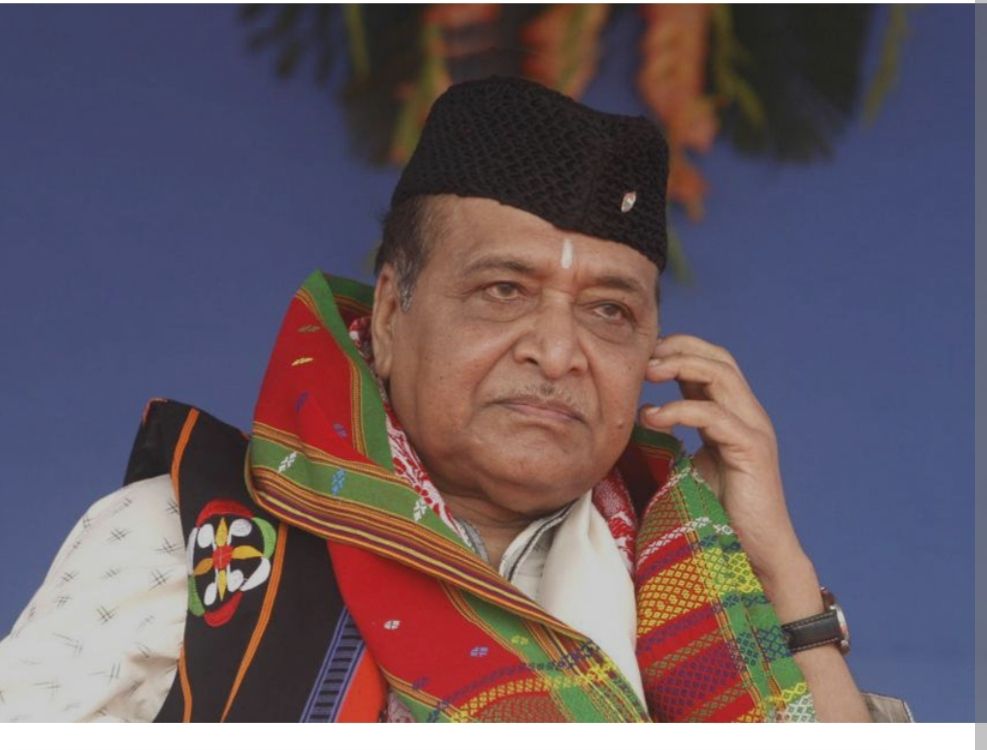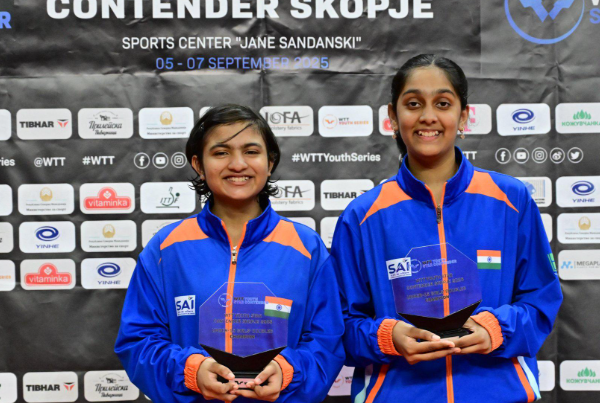Guwahati, Sept 8: Bharat Ratna Bhupen Hazarika strode like a colossus over India’s cultural landscape for nearly seven decades, carving a distinct niche not only for himself but also for Assam and the entire North East, both at the national and international level.
A singer, composer, filmmaker, actor, poet, author and journalist, Hazarika reached creative heights few from the region could match.
He was single-handedly responsible for giving the region’s cultural heritage its due place in the national arena.
His creative versatility knew no boundaries, traversing through varied fields and stamping his unique individual identity on each genre.
Prime Minister Narendra Modi, along with a host of leaders across the political spectrum, paid rich tributes to Hazarika on his 99th birth anniversary.
Modi said he was one of the most extraordinary voices India has ever known.
In a post, Modi shared an article he wrote on the Bharat Ratna winner, who was born in Assam, noting that the year marks the beginning of his birth centenary celebrations.
Often hailed as a modern-day balladeer, his deep baritone voice, perfect diction and powerful lyrics resonated across generations.
He was honoured with the Bharat Ratna posthumously in 2019, eight years after he died in Mumbai at the age of 85.
Hazarika, called the ‘Sudhakanta’ (the nectar-voiced) by the people of Assam, was born at Sadiya in Tinsukia district, on September 8, 1926.
‘Bhupenda’, as he was popularly called by old and young alike, always claimed that music was his first love, but excelled himself in a much wider cultural mosaic.
His forte as a lyricist and music composer is legendary, with songs covering a wide range of themes from the erotic to social and political commentary, while the music was drawn largely from both folk and contemporary elements.
Hazarika was a member of the Indian People’s Theatre Association (IPTA), sang and composed more than 1,000 songs in Assamese, Bengali and Hindi.
The maestro was a child prodigy who wrote and sang his first song at the age of 10 in the first-ever Assamese film, ‘Joymoti’, and also acted in the second Assamese film, ‘Indramalati’, in 1939 when he was 12 years old.
An academically bright student, Hazarika did his schooling from Cotton Collegiate School and Intermediate Arts from Cotton College in 1942, following which he went to Banaras Hindu University to complete his graduation and postgraduation in political science.
Soon after, he left for New York, where he lived for five years and received his doctorate (PhD) in Mass Communication from Columbia University.
He also received the Lisle Fellowship from Chicago University to study the use of educational project development through cinema.
Hazarika has been credited with taking the fledgling Assamese film industry to new heights at both the national and international level by making path-breaking films, with three of his films winning the President’s medal in 1960, 1964 and 1967.
After returning to Assam, Hazarika began his foray into the world of films in 1956 with ‘Era Bator Sur’, which he produced, directed, composed music and also sang.
He followed this with ‘Shakuntala’ in 1960, ‘Pratidhwani’ in 1964, ‘Lotighoti’ in 1967, ‘Chik Mik Bijuli’ in 1971, ‘Mon Projapati’ in 1978, ‘Swikarokti’ in 1986 and ‘Siraj’ in 1988.
He also directed, composed music and lent his voice for ‘Mahut Bondhu Re’ in 1958, and later for Arunachal Pradesh’s first Hindi colour feature film, Mera Dharam Meri Maa (1977).
A pioneer of documentary filmmaking in India, Hazarika directed ‘For Whom the Sun Shines’ (1974) for the Arunachal Pradesh government, showcasing tribal folk songs and dances.
In 1977, he produced and directed ‘Through Melody and Rhythm’, a half-hour documentary for Calcutta Doordarshan, highlighting the folk music and dance traditions of Northeast India.
He produced and composed music for ‘Ek Pal’, ‘Rudaali’, ‘Darmiyan’ and ‘Daman’, directed by his partner Kalpana Lajmi, along with ‘Mil Gayee Manzil Mujhe’, ‘Saaz’, ‘Papiha’, ‘Pratimurti’, ‘Chameli Memsaheb’ and ‘Gajagamini’, directed by his close friend and artist M F Hussain.
Hazarika also produced and composed the music for the extremely popular television serial ‘Lohit Kinare’, directed by Kalpana Lajmi, based on the famous short stories of Assam for the national network in 1988.
His remarkable popularity also carried him into public life, when he was elected as an Independent member of the Assam Legislative Assembly from 1967 to 1972.
Decades later, he again entered electoral politics, contesting the 2004 Lok Sabha polls on a BJP ticket, though unsuccessfully.
Over his lifetime, Hazarika received numerous awards, including the Dadasaheb Phalke Award (1992), Padma Shri, Padma Bhushan, Sangeet Natak Akademi Award, and Assam’s highest civilian honours Asom Ratna and Srimanta Sankardeva Award.
He was also a journalist and edited two Assamese monthly magazines ‘Amar Pratinidhi’ and ‘Pratidhwani’.
He was perhaps the only living person in the state to unveil his own statue in 2009 when the All Assam Students’ Union honoured him by erecting his life-sized statue in Guwahati’s Dighalipukhuri.
On the personal front, Hazarika was briefly married to Kenyan-born Indian Priyamvada Patel, with whom he has a son Tez Hazarika, but later separated and lived nearly for four decades with renowned filmmaker Kalpana Lajma. (PTI)




